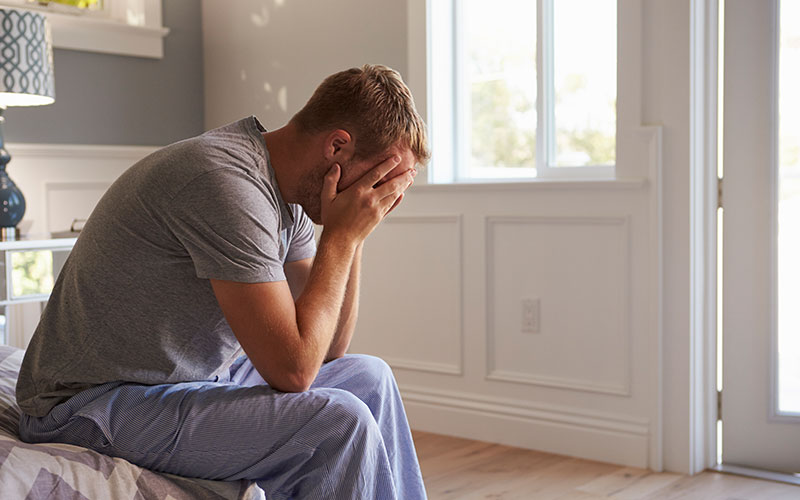Source: Thailand Medical News Sep 29, 2019 6 years, 4 months, 1 week, 5 days, 23 hours, 59 minutes ago
Thailand Anti-Aging
The male menopause is unlike the female menopause where ovulation ends and hormone production plummets during a relatively short period of time. In men, production of testosterone and other hormones declines over a period of many years and the consequences aren't necessarily clear.
Andropause is a more apt term for male menopause. It describes age-related changes in male hormone levels usually gradually over a long period of time. The same group of symptoms is also known as testosterone deficiency, androgen deficiency, and late-onset hypogonadism.
Male menopause involves a drop in testosterone production in men who are age 48 or older. It is often affiliated with hypogonadism. Both conditions involve lowered testosterone levels and similar symptoms.
Hormone changes are a natural part of aging. Unlike the more dramatic reproductive hormone plunge that occurs in women during menopause, however, sex hormone changes in men occur gradually
Testosterone levels vary greatly among men. In general, older men tend to have lower testosterone levels than do younger men. Testosterone levels gradually decline throughout adulthood, about 1 percent a year after age 30 on average.
Testosterone is a hormone produced in the testes for males. It does more than fuel your sex drive. It also fuels changes during puberty, fuels your mental and physical energy, maintains your muscle mass, regulates your fight-or-flight response, and regulates other key evolutionary features.
Monitoring Testosterone Levels
A blood test is the only way to diagnose a low or reduced testosterone level. Some men have a lower than normal testosterone level without signs or symptoms. In this case, no treatment is needed.
Main Symptoms Of Andropause
Changes in sexual function. This might include reduced sexual desire, erectile dysfunction, fewer spontaneous erections, such as during sleep and infertility. Your testes might become smaller as well.
Changes in sleep patterns. Sometimes low
testosterone causes sleep disturbances, such as insomnia, or increased sleepiness.
Physical changes. Various physical changes are possible, including increased body fat, reduced muscle bulk and strength, and decreased bone density. Swollen or tender breasts (gynecomastia) and loss of body hair are possible. You might sometimes experience hot flashes and have less energy. Lowering of voice is also sometimes experienced.
Emotional changes. Low testosterone might contribute to a decrease in motivation or self-confidence. You might feel sad or depressed, or have trouble concentrating or remembering things.
;
If you are experiencing signs and symptoms that might be the result of a low testosterone level, consult your doctor or an endocrinologists. He or she can evaluate possible causes for the way you feel and explain treatment options.
Work with your doctor to identify and treat any health issues that might be causing or contributing to your signs and symptoms, from medication side effects to erectile dysfunction and other sexual issues.
Make healthy lifestyle choices. Eat a healthy diet and include physical activity in your daily routine. Healthy lifestyle choices will help you maintain your strength, energy and lean muscle mass. Regular physical activity can even improve your mood and promote better sleep.
Seek help if you feel down. Men don't always experience depression as feelings of sadness. You may be unusually tired, anxious or irritable, even angry and you may have trouble keeping up with your responsibilities at work and home. Other common symptoms in men include difficulty sleeping and thoughts of suicide. Talk with your doctor if you think you might be depressed. Many effective treatments are available.
Be wary of herbal supplements. Herbal supplements haven't been proved safe and effective for aging-related low testosterone. Some supplements might even be dangerous. Long-term use of DHEA, for example, has no proven benefits and might increase the risk of prostate cancer.
Testosterone Therapy Is Controversial.
Treating aging-related low testosterone with testosterone replacement therapy is controversial.
For some men, testosterone therapy relieves bothersome signs and symptoms of testosterone deficiency. For others, the benefits aren't clear and there are possible risks.
Among the risks, testosterone therapy contributes to sleep apnea, stimulates noncancerous growth of the prostate and stimulates growth of existing prostate cancer. Testosterone therapy may also increase the risk of heart attack and stroke and contributes to the formation of blood clots in the veins.
If you wonder whether testosterone replacement might be right for you, work with your doctor to determine why your testosterone level is low and whether it is causing your symptoms. Weigh the pros and cons of treatment together with your doctor.
Thailand Medical News warns and advices all men undergoing andropause to never ever try to self-treat or self-prescribe testosterone medications or testosterone injections purchased through online stores or street vendors or gym owners or even visit anti-aging clinics run by doctors that are not specialized in endocrinology or even have a big team of doctors that can help assess other underlying issues that you might be having such as cardiovascular issues etc as it could be fatal if these ‘unqualified’ doctors prescribe testosterone to you without assessing your total body health thru full screenings and diagnostics.
The best choice is to visit an endocrinologists at a realiable hospital like to get your condition assessed and treated by a proper specialists.
